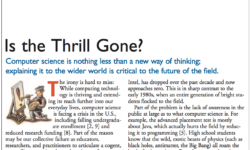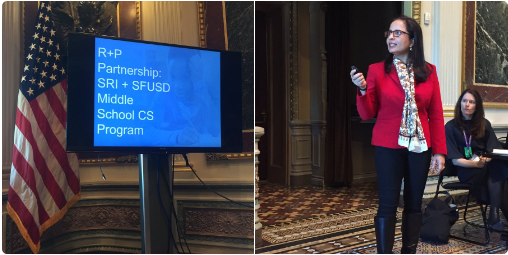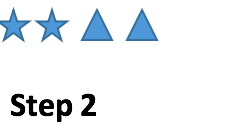Shuchi Grover, Ph.D.
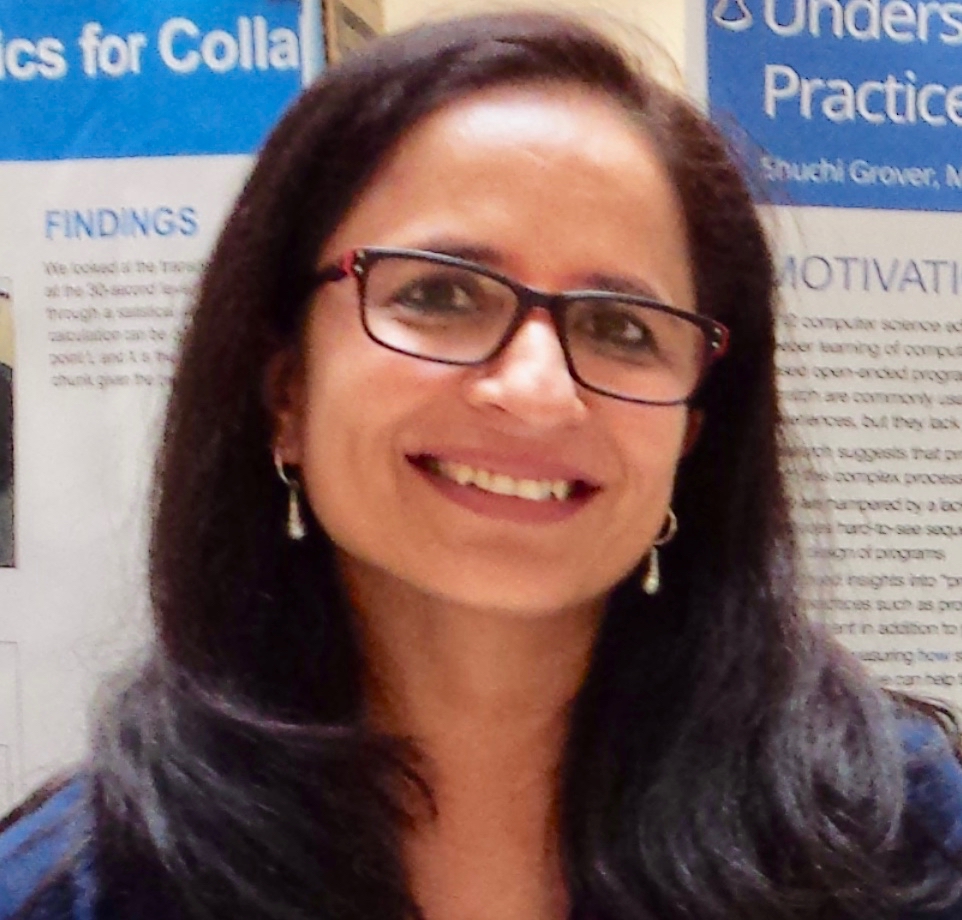 I’m a seasoned learning scientist and researcher in computer science (CS), AI, cybersecurity, and STEAM education.
I’m a seasoned learning scientist and researcher in computer science (CS), AI, cybersecurity, and STEAM education. My current research and efforts span the US, Europe, and Asia, and are primarily centered on Computational Thinking, AI, CS, and STEAM learning in the PK-14 years— helping and empowering learners to build a strong foundation for STEM literacy. I focus on the design of curricula, assessments, tools, and environments that help develop 21st century competencies; as well as social, cultural, cognitive and socio-emotional processes that nurture the development of creativity, critical thinking, and interest in STEM disciplines. I have a Ph.D. in Learning Sciences & Technology Design from Stanford University, masters degrees in Education (Harvard University) and Computer Science, and bachelors degrees in Computer Science and Physics. More. |





|
Thinking about Computational Thinking | How the Learning Sciences can Shape Deeper Learning of CS in K-12 School Education
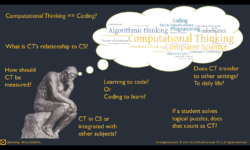
This gallery contains 5 photos.
On November 29 (a date that holds much personal significance for me), I had the distinct pleasure of addressing a wonderful gathering of learning scientists and educators at the 26th International Conference on Computers in Education in Metro Manila hosted by the Ateneo Laboratory for the Learning Sciences of the…
Helping Students See Hamlet and Harry Potter in a New Light With Computational Thinking
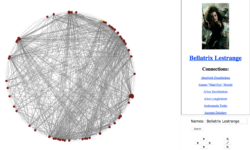
I published this article in EdSurge on November 28, 2018, as a concrete example of how (a) computational thinking can be integrated in Language Arts (and non-STEM subjects) and (b) elements of CT such as ‘data representation’ can be taught without a computer. And keeping computation mind also helps teach…
Computer Science Is Not Just For Big Kids
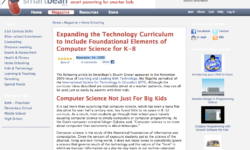
9 years ago to the day, the following article (inspired by an earlier 2008 blog post) appeared in the November 2009 issue of Learning and Leading With Technology, the flagship periodical of the International Society for Technology in Education (ISTE). I never used the phrase ‘computational thinking’ anywhere in the…
A Tale of Two CTs (and a Revised Timeline for Computational Thinking)
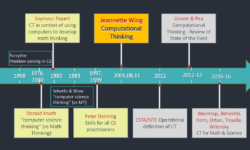
Last week, Fred Martin (current chair of the CSTA Board and my co-conspirator on the “CT From K-12 Disciplinary Perspectives” NSF-funded effort), while speaking at a CSTA meeting in New England, presented a broadly accepted timeline of Computational Thinking (CT). Although Jeannette Wing should undoubtedly be credited for taking the…
A Tale of Two (CACM) Viewpoints
What CS in schools can learn from Science and Mathematics
I read Judy Robertson’s CACM article with interest. It advocates for teaching kids more about how computers work including how programs and variables work, and also stuff like the internet and WiFi. The article raised some good points. I have had similar experiences in the context of introducing middle school…
Computational Thinking: The ‘5th C’ of 21st Century Skills

[This article was published February 25, 2018 on EdSurge] For better or worse, computing is pervasive, changing how and where people work, collaborate, communicate, shop, eat, travel, learn and quite simply, live. From the arts to sciences and politics, no field has been untouched. The last decade has also seen…
CSForAll Forges Ahead at the District, State, and National Level
Hello world!
At long last, I’m re-joining the world of blogging. Setting up this blog is my last good act to close out 2016. I’ve just about managed to complete basic setup, but I’m still experimenting with themes, header image, fonts/colors, etc., so what you see is a placeholder for now. I hope to…




